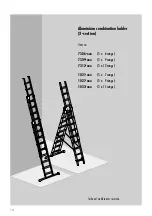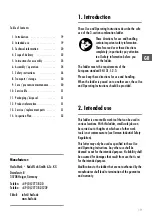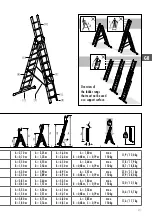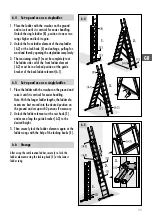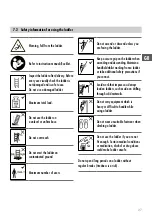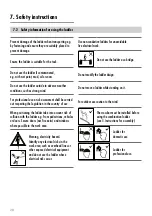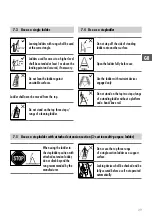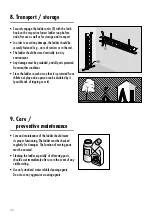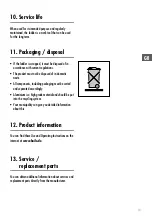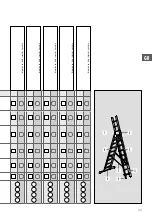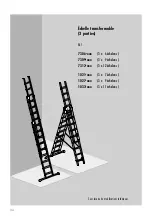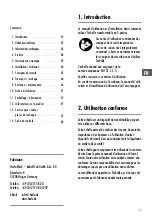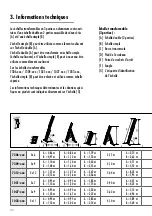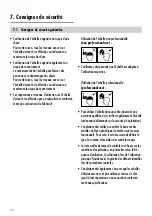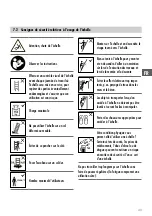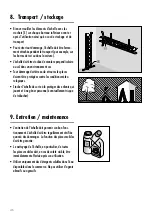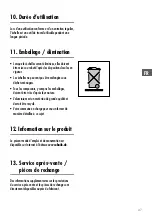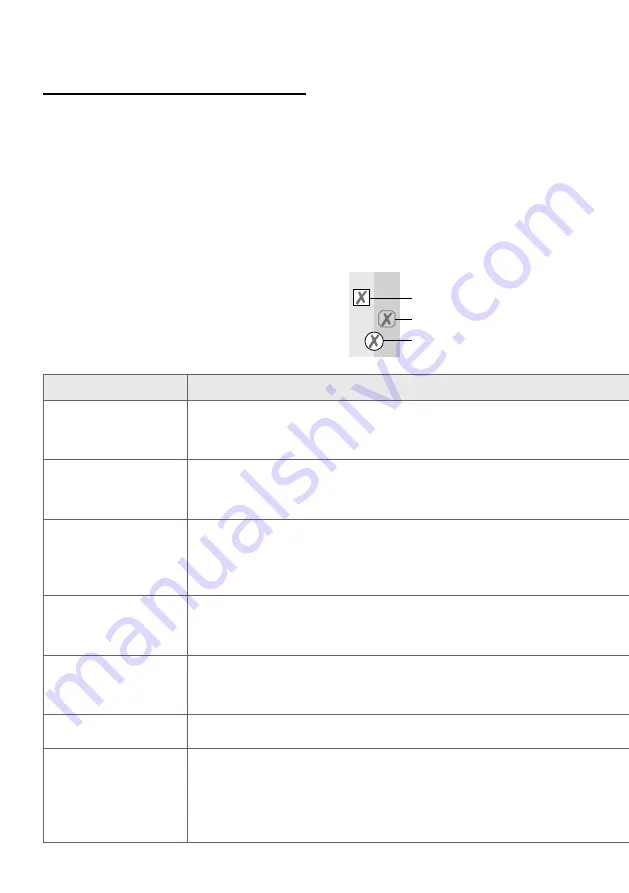
32
14. Inspection plan
Check appropriate box with an “x”:
The ladder is OK
The ladder is defective
Result
• There exists the risk of a fall due to damaged, defective or non functional ladder units; there is also a risk of
tipping over when using the ladder.
• Users of the ladder can sustain serious injuries during a fall.
• Objects can likewise be damaged if the ladder tips over.
Ladder elements:
Inspection points
:
1. General
inspection points
All fastenings (rivets, screws, bolts, etc.) must be completely present.
Are any fastenings possibly loose or corroded?
Are there any contaminants (e.g., dirt, mud, paint, oil or grease) on the ladder?
2. Ladder stile,
ladder rung
Are the ladder side rails possibly bent, twisted, dented, cracked or corroded?
All ladder rungs must be completely present.
Are ladder rungs possibly worn out, loose, corroded or damaged?
3. Connecting elements,
ladder guide,
fittings
Inspect ladder guides and stop bolts for functionality and tightness as well as
damage and corrosion.
The locking of the ladder with the locking hooks and anti-lift security device must work perfectly.
Are the locking hooks and anti-lift security device possibly damaged, loose or corroded?
4. Crossbar,
feet,
caps
Inspect crossbar, feet and end caps for tightness as well as damage and corrosion.
All ladder feet and end caps must be present.
Are any ladder feet loose, worn out or corroded?
5. Safety braces
Inspect technical condition of the tensioning rope.
Are the attachment points in good condition?
Are damage or cracks present?
6. Ladder labels
Are all labels present and perfectly legible?
RESULT
The ladder is all right and usable.
A repair of the ladder is required.
A repair has been carried out, and the ladder is usable again.
The ladder is no longer usable (disposal).

